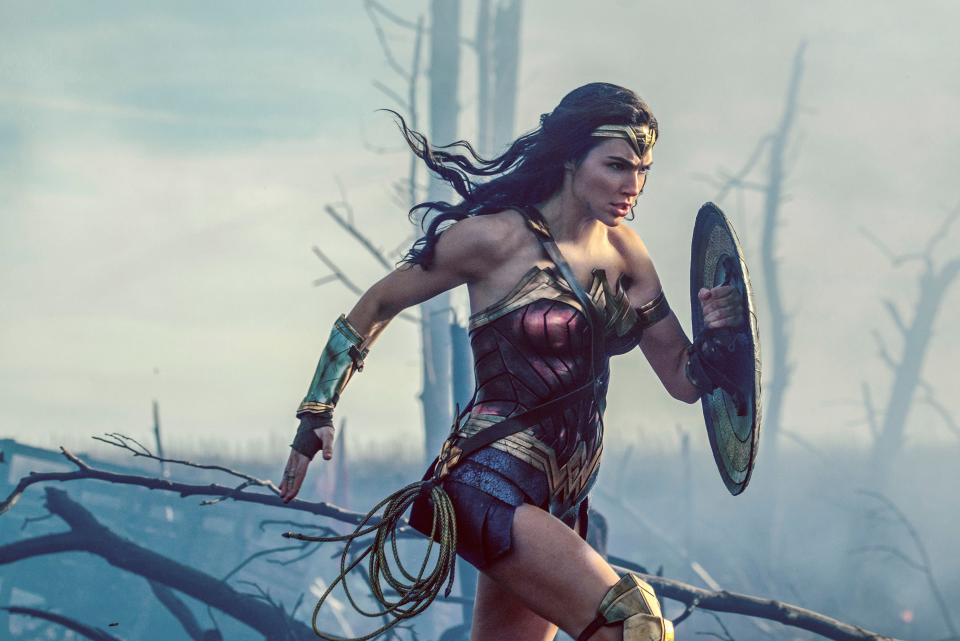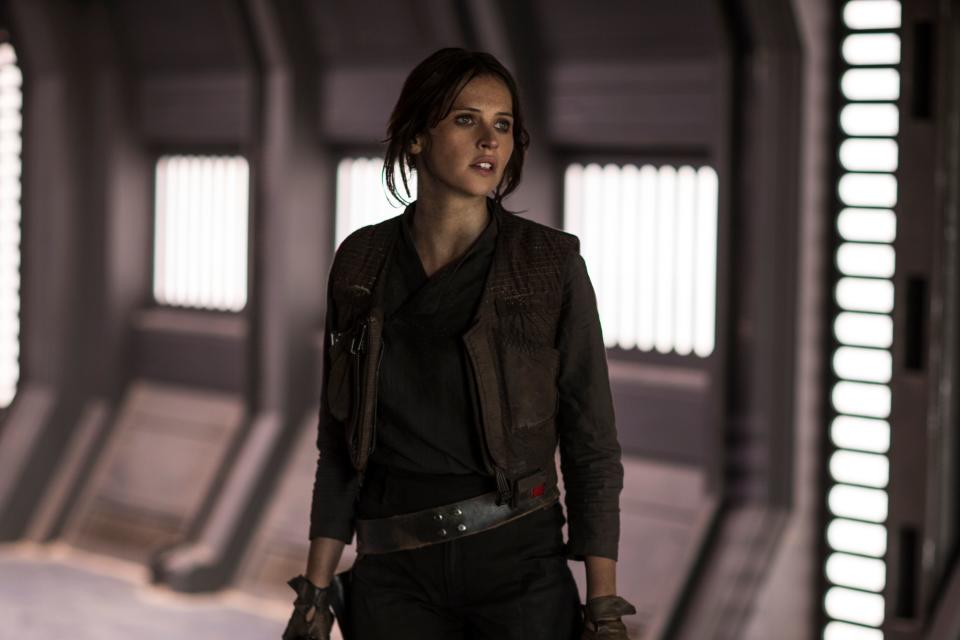Why I don’t want to diss Captain Marvel — or any other female action hero
I have developed a bizarre routine around female-led action films.
First, I’m vocal about how “I’m so excited” to see this movie because it's "so me." Then, I investigate the number of pounds a film star had to lift and/or gain in order to get the necessary upper-body strength for combat scenes. "What a badass," I tell anyone who will listen. "What a good gymspiration," I tell myself.
Finally, I see said film while taking vigorous notes. In the pitch-black, I blindly jot down meaningful quotes, clever Easter eggs and cringeworthy moments in cryptic handwriting I've spent years learning to decipher. I put stars next to the good things.
I cherry-pick from my starred notepad items for a positive story or two, tell anyone who asks that the movie was "pretty good!" and never revisit my scribbles again. I literally close my book of negative thoughts.
The same thing just happened with “Captain Marvel.” I went through my usual motions before my Lyft driver asked me what I thought of the first female-fronted solo superhero film in the Marvel Cinematic Universe. I gave him my standard two-word response with as much enthusiasm as I could muster.
That’s when I realized that I’ve been doing the same thing for the last few years: not allowing myself to fully critique female-led action films the same way I do their male-starring counterparts, trying so hard to force myself to like some of these movies more than I actually do.
There are genuinely many things that I love about “Captain Marvel.” I love that Brie Larson’s Carol Danvers has muscles and she looks like she could beat me up. I love that she stays single throughout the entire film and proves she doesn't need a man. I love that she neither shows her cleavage nor wears impractical footwear.
See, I really liked the movie! Look at all the reasons I just gave you!
Oh, you want to know what else I wrote down? (Turns to crumpled notepad.)
Well, Ben Mendelsohn's alien Talos stole the entire film, Carol Danvers didn’t make any particularly funny jokes, I was hit over the head with the theme of choosing compassion, and the film was too long.
But Mendelsohn is a great actor, so of course he’s distracting. Not all heroes have to be funny, so Carol can just be one of the more serious ones! And having humanity is a very important lesson everyone should hear, even if it takes a few hours to relay it!
This is the silent argument that rages in my head and my notebook.
Ultimately, I’m scared to speak negatively about strong women, because I feel like my feedback will hurt the chances of there being more female cinematic heroes in the future.

It seems anti-feminist to complain about Gal Gadot’s Wonder Woman not looking quite athletic enough to be an Amazon warrior trained by an ambiguously accented aunt. After all, Diana’s strength comes from powers, not physical muscles. Plus, commenting on a woman’s appearance sounds awfully sexist; I wouldn’t dare.
I would never suggest that Jyn Erso from “Rogue One” holds a blaster the same way I hold a kitchen knife (without any confidence and looking like I’m going to hurt myself) and is unconvincing with her political spiel about rebellions being “built on hope.” (And that, once again, Mendelsohn’s villain is a much more compelling character than the female hero.) Mentioning any of that would just set women back.

It would be poor form to share that Alicia Vikander’s Lara Croft back muscles and wit – but mostly her back muscles – were the best parts of a movie where the actual raiding of tombs was boring. That’s reductive.
And I shouldn't point out that the plot of Charlize Theron’s “Atomic Blonde” was maddening and almost nonsensical, because the stunt sequences were so impressive, right?
No, I don’t want to say any of that. It's tough to shake the feeling that doing anything other than praising films like “Wonder Woman,” “Tomb Raider,” “Rogue One” and “Atomic Blonde” is letting my sisters down.
But I wish that I could, without feeling like I'm giving campaign slogans to vocal misogynists trying to take down female-driven films before they're even in theaters.
I know that giving abridged critiques isn't doing anyone any favors, either. Then I become what naysaying trolls think I am: a woman who lauds any movie starring a woman.
You see, I've been selectively cheering movies on, while also secretly wishing that they had everything – humor, brains, courage, charisma, strength, confidence and heart – so that they are worthy of being the star of a figurative poster on my bedroom wall. (So far, either Rey from "Star Wars: The Force Awakens" or the Dora Milaje from "Black Panther" have the best chance at earning real estate.)
It would be better if I could treat our Captain Marvels like our Captain Americas. After all, both “Captain Marvel” and “Captain America: The First Avenger” received similar thumbs up from critics (79 and 80 percent, respectively) on Rotten Tomatoes, and both are success stories in the MCU.
And both have their weaknesses (starting with Captain America’s traumatizing use of Chris Evans’ CGI face on a little boy body that I will never forget, and that he only becomes a respectable hero after juicing) but they’re strong enough to take the criticism.
In reality, these films don’t need my stilted commentary in order to be successful. After all, "Captain Marvel" just had the biggest opening weekend of the year ($153 million), and female-led movies consistently outperform male ones.
But they deserve more thoughtful reviews than “pretty good.”
This article originally appeared on USA TODAY: Why I don’t want to diss Captain Marvel — or any other female action hero

